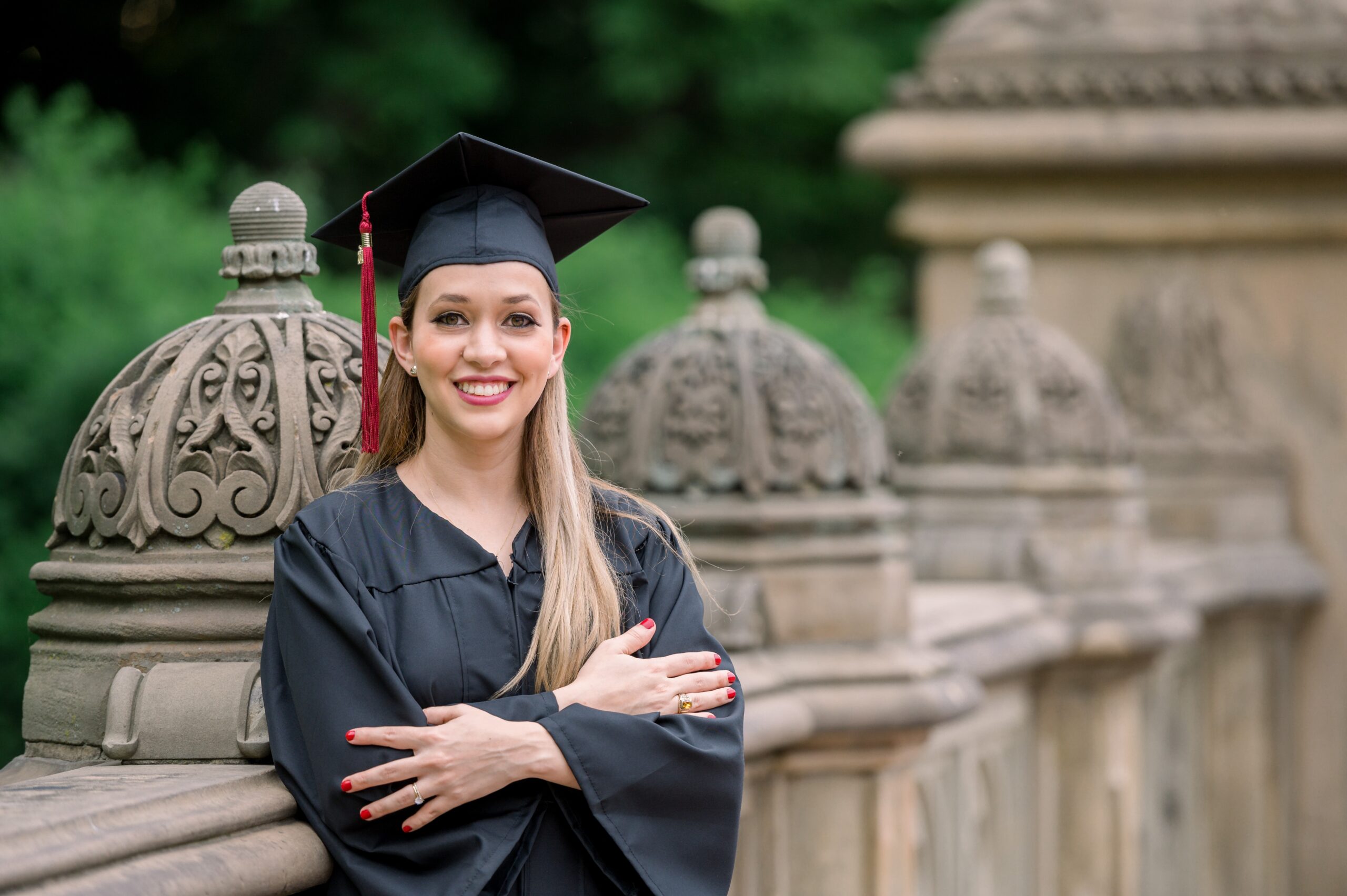
Jenniffer Sánchez’s Story
When Jenniffer Sánchez joined RiseBoro Community Partnership (RB) as a financial coach, she began working with clients of RB’s Education Division, leading general financial workshops for adults enrolled in GED/High School Equivalency (HSE) and English-language classes. At the end of these workshops, many clients approached her to request one-on-one meetings to discuss their financial situations and ask questions about what they had learned. It was in these meetings that she noticed a trend. Many people enrolled in RB’s GED/HSE classes were recently arrived immigrants who had earned college degrees in their home countries. Some were highly educated engineers and medical doctors.
When Sánchez asked them why there enrolled in high school classes, they all confirmed her fears. After moving to the United States, they had been told that their foreign degrees and high school diplomas were not valid and that in order to continue their careers they would have to start over.
Sánchez knew this was not true. She had struggled against the same misinformation just five years earlier, until she had stumbled upon the simple but hidden process for validating foreign degrees.
“I knew this was an opportunity for RiseBoro to create something to help immigrants who come to New York City with professional degrees,” Sánchez said.
Born and raised in Jarabacoa, a mountain town in the central Dominican Republic, Sánchez put herself through college by working fulltime during the day and taking evening classes at Universidad Catolica del Cibao in La Vega, a city an hourlong bus ride away. When she completed her bachelor’s degree in accounting, she became the first person in her family to graduate from college. She worked in the operations department of a commercial bank for several years before moving to New York City with her husband—who had grown up and attended college in the United States—to advance his career.
Sánchez was nervous about the move. Many of her colleagues in the Dominican Republic warned that her career experience and bachelor’s degree would not be accepted in the United States.
“I had worked my whole life to get my bachelor’s degree,” she said. “It had taken a lot of effort and a big investment from me. I was scared.”
Within one week of arriving in NYC, she enrolled in English-language classes at the City College of New York and began researching the process of applying to a master’s degree program.
“I went to the City College administrative office, and I remember so vividly that there was a man there who was Dominican,” she recalled. “I was learning English, so I thought this was great and that he would help me and speak to me in Spanish so that I could better understand the process and what I needed to do. But he was not what I was expecting.”
When she approached him and explained her situation, the man immediately told her that she would need to earn a second bachelor’s degree in the United States before she could apply to the master’s degree program. Because her husband had told her that many U.S. colleges and universities accept international students with foreign degrees, Sánchez felt confident pushing back on his response. If international students can validate their foreign degrees, wouldn’t immigrants be able to do that too?
“I asked him why because I had heard that there was a process to validate your degrees here, and he said that wasn’t true,” she said.
But Sánchez had worked too hard for her bachelor’s degree to accept that. She went to the Dominican Consulate office near Times Square to explain her situation and ask if they could help. That decision changed everything. The consulate reassured that her that there was a validation process and that they could help her complete it. They asked for proof of her bachelor’s degree and a $300 processing fee. Thirty days later, she received a degree validation certificate in the mail. It was so easy.
Introducing: HIPE (Helping Immigrants Professionally Excel)
Now five years later, having completed a master’s degree in public administration and begun working at RB, she was ready to create a program that would help other college-educated immigrants discover and navigate this process and advance their careers.
In January 2023, RB awarded Sánchez a $30,000 grant to design and launch what would become HIPE (Helping Immigrants Professionally Excel), a pilot program that manages the degree validation process for college-educated immigrants at no cost to them.
Interested clients begin by completing an online form to determine whether they qualify for degree validation. Sánchez then follows up with them individually with instructions on next steps. If they qualify, she works with them to identify and gather paperwork and then submits it on their behalf. Clients can expect to receive their validation certificate in the mail in just a few weeks. Afterward, they can apply to jobs in their field or continue their educations at an appropriate level, without having to start over.
“Programs like this help a person for their entire life,” Sánchez said. “We are helping people have a better head start in this county and challenging the idea of what it means to be an immigrant. The limitation of not knowing the language or not knowing the system shouldn’t mean that an immigrant needs to take whatever job is available. We have so much to give this country.”
To apply for the HIPE program, complete the online application here. To find out how you can partner, volunteer, or donate to support HIPE, email [email protected].
